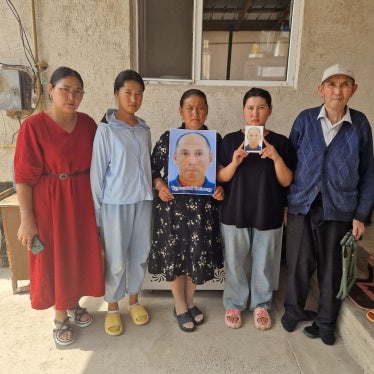The summer break for German parliamentarians is over. On their return to the capital, their eyes will almost certainly be on the crisis in Ukraine, and the role that the Kremlin has played in stoking it. Many politicians are probably wondering how, only 25 years after the fall of the Berlin Wall, the threat of another major war in Europe looms. But they also need to look beyond this.
Since Putin’s return to the Kremlin in 2012, Russia has resorted to the worst repression of human rights since the end of the Soviet era – something German politicians rarely consider. Yet this is precisely the gist of the matter. In the shadow of the Ukraine crisis, this repression has intensified considerably as the Kremlin seeks to publicly brand people who do not support Russia’s role in Ukraine as “national traitors.” In Russia, it’s more common to hear state-sponsored hysterical propaganda regarding the Ukraine crisis, instead of independent journalism. A poisonous campaign has been launched to demonize some of Russia’s major cultural figures who have criticized Russia’s role in Ukraine.
As frightening as it is, this development comes as no surprise. Human Rights Watch and other groups have strongly and repeatedly pointed to on-going repression. Over the past few years new laws have greatly restricted freedom of assembly and expression – including Internet freedom. Since early 2013, Russia has forcibly registered some of its most prominent nongovernmental agencies as “foreign agents” – branding them as spies and traitors – in part because they received foreign funding.
However, with few exceptions, German politicians and diplomats have preferred to lend their ear to powerful business lobbyists who warn against criticizing Putin. These people and groups include Germany’s former chancellor Gerhard Schröder, the conservative foreign policy spokesperson Philipp Mißfelder, as well as the Committee on Eastern European Economic Relations. They preach a dangerous mealy-mouthed approach to the Kremlin’s repression and appeal to visions of Germany’s former Ostpolitik, or normalized relations with Eastern Europe. Wading knee-deep in realpolitik, Berlin has remained complacent.
Today the Bundestag and German business must realize that by looking the other way, they have played a role in strengthening Russia’s hard line, both internally and externally. It is high time that Berlin developed a robust, value-based foreign policy that is fundamentally focused on human rights. Otherwise, even after Putin leaves office, we can expect somber times in Russia and in the whole of Europe.








